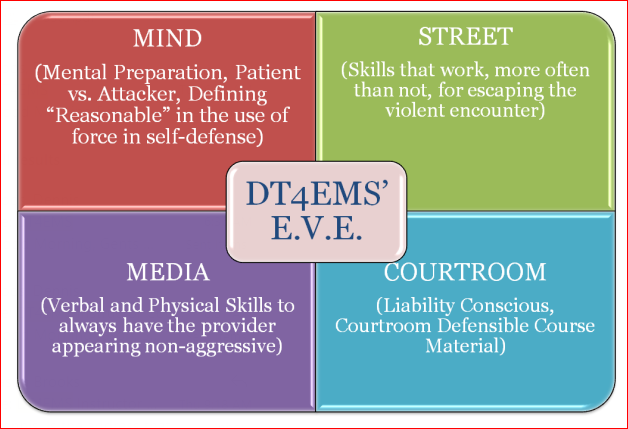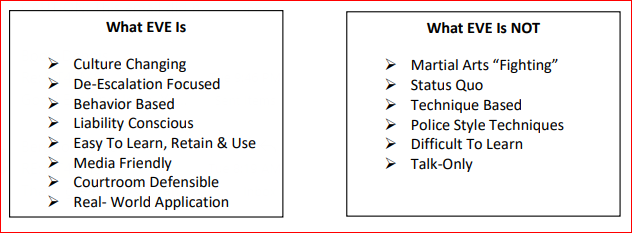WE CAN COME TO YOU!
ALL COURSES WE OFFER CAN POTENTIALLY BE BROUGHT TO BUSINESSES/ ORGANIZATIONS/ FACILITIES.
CONTACT US AT uhctc@uhnj.org TO DISCUSS GROUP RATES.
Escaping Violent Encounters for Healthcare Providers - Pre Approved for 13 NJ Elective CEU's
The health care industry leads all other sectors in the incidence of nonfatal workplace assaults
Almost daily medical staff are threatened, yelled at or physically assaulted by a “patient”
Injuries from assaults are a leading cause for lost work hours in the field of medicine
Who would want to assault a healthcare provider?
There is a widely recognized but little acknowledged problem threatening healthcare personnel: injury through assault. The frequency of assault on our Healthcare Providers is alarming. 52% of healthcare providers reported being attacked on the job. This is more than Police officers and prison guards.
WHY?
In short it is in our nature and training. From day one we are taught to “Develop a patient relationship, be the advocate and serve the patient’s needs!” No one does this better than healthcare providers. However healthcare providers are never provided training to identify the change in that relationship from patient to aggressor/attacker
Current Thinking?
It’s part of the job!! This is the current thinking only because we haven’t been taught where care stops and criminal acts begin. In every other industry an attack on a worker is considered a reportable crime.
How can E.V.E. Benefit You
Our courses take a four pronged approach, with training in four specific areas: Mental, Physical, Media and Courtroom.
The Mental training teaches the provider the difference between a patient and an attacker.
This is important because you want your staff treating a patient who’s confused or has an altered mental status for medical reasons differently than an intoxicated or drugged attacker in a similar situation. A lack of training leaves the provider responding with a primly instinct, like a caveman
The actual Physical skills leave the provider with a realistic belief in their skill level.
DT4EMS allows them to understand what it takes to escape violent encounters. Our experience in training is that the more a person trains, the less they use physical skills
Training for the Media age is important because so many people have access to photo and video equipment.
We train your staff to appear at all times non-threatening with verbal skills and body language. There are no closed-fist techniques taught in our courses.
Finally we train for the Legal process that will occur after a violent encounter.
This includes documentation skills and proper reporting to supervisors and law enforcement.

Many Healthcare Providers have anecdotal stories of how they were attacked by a violent patient, an angry bystander or upset family member. While most attacks are not life threatening, the risk of serious injury is evident and unpredictable. Healthcare Providers need an effective and reasonable plan on how to avoid an attack, and also know how to defend themselves once attacked. Medical staff requires a reasonable, liability-conscious, effective means of preventing and avoiding assault by patients, their family or bystanders
Our E.V.E. courses are NOT based on law enforcement “pain compliance/control” techniques, the use of non-violent course content for use with “violent people”, NOR a martial arts class that teaches “fighting” skills.
Real-World Application
Our Escaping Violent Encounters program course provides Healthcare Providers the options needed to recognize a developing threat of assault, deflect it if possible, escape if practicable, and to defend if necessary. This non-violent system of prevention and avoidance takes a realistic approach to the subject.. In the medical world where crisis creates rage, diabetic reaction overcomes reason, the mentally disabled act upon their delusions, those under the influence act with superhuman strength, and the career criminal lashes out at medical personnel even as they are engaged in life-saving efforts a realistic program must take this into consideration. Keep in mind, the attackers don’t come to class to learn how to attack you.

Escaping Violent Encounters provides the basic skills required by any Healthcare Provider when facing possible, or even imminent assault. The course content consists of:
: • Before you enter the room or home. (Pre-Planni ng) • Verbal skills to diffuse potentially violent encounters. • Entrance/exit plan • Recognize the difference between a patient and an attacker/aggressor. • Pre-assault indicators. (bystanders, body language, situational survey) • The 6 D’s (Drugged, Domestic, Diabetic, Deranged, Drunk and Desperate) and what to look for in each. • Legal aspects of self-defense. • Legal aspects of patient restraint. • Mental Preparation (Survival Mindset, Understanding stress and its effects) • Documentation Skills (Using the DT4EMS Assault Response Form) • Courtroom Demeanor • Good Customer Service • Assault Response Guidelines. (levels of force) • Critical Thinking Problem-Solving. • Escapes from various grabs/holds • Easy to learn and retain “drills” to reinforce reaction timing • Training in the 4 specific areas of self-defense
ng) • Verbal skills to diffuse potentially violent encounters. • Entrance/exit plan • Recognize the difference between a patient and an attacker/aggressor. • Pre-assault indicators. (bystanders, body language, situational survey) • The 6 D’s (Drugged, Domestic, Diabetic, Deranged, Drunk and Desperate) and what to look for in each. • Legal aspects of self-defense. • Legal aspects of patient restraint. • Mental Preparation (Survival Mindset, Understanding stress and its effects) • Documentation Skills (Using the DT4EMS Assault Response Form) • Courtroom Demeanor • Good Customer Service • Assault Response Guidelines. (levels of force) • Critical Thinking Problem-Solving. • Escapes from various grabs/holds • Easy to learn and retain “drills” to reinforce reaction timing • Training in the 4 specific areas of self-defense
Plase read the course terms and condtions PRIOR to registering. Course tuition is not reimbursable once registration is complete, no exceptions.